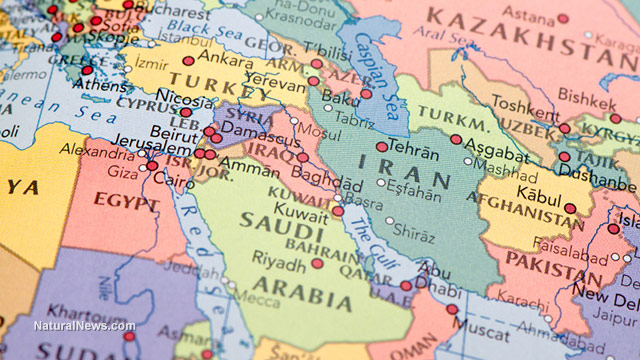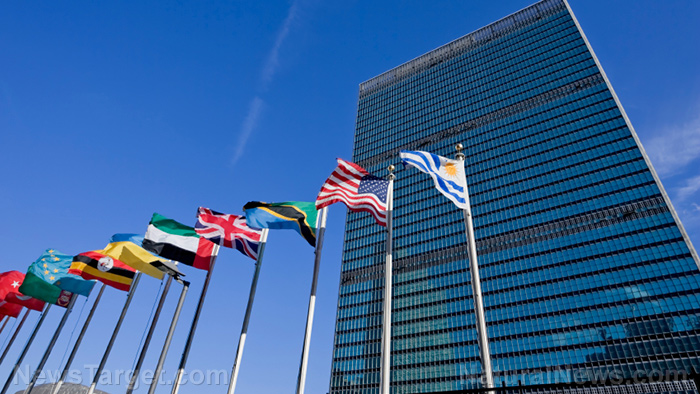Saudi Arabia signs $5.6 billion deal with China to boost the kingdom’s EV industry
06/21/2023 / By Laura Harris

Saudi Arabia has announced its intention to further “collaborate” with China by strengthening its economic ties with the communist nation in the form of a new multi-billion dollar deal that will boost the kingdom’s electric vehicle (EV) industry.
Saudi Arabia’s Ministry of Investment inked a $5.6 billion deal with Chinese EV manufacturer Human Horizons to collaborate on the development, manufacture and sale of new EVs.
The agreement accounts for more than half of the over $10 billion in investments the Saudis and the Chinese signed just on the first day of an Arab-China business conference in Riyadh, with the investments involving multiple sectors including technology, renewable energy, agriculture, real estate, metals, tourism and healthcare.
These varied deals highlight the desire of Saudi Arabia, the world’s leading oil exporter, to reduce its economic dependence on oil and shift toward boosting its investments in non-oil industries.
The move also underscores Saudi Arabia’s desire to increase collaboration with China, already its largest trading partner, as the kingdom moves to decouple itself from the United States and the rest of the Western world. (Related: Dollar dominance scheduled for TERMINATION as Saudi Arabia declares CHINA its “reliable partner.”)
During the Arab-China conference, Saudi Arabian Minister for Energy Prince Abdulaziz bin Salman, half-brother of de facto ruler Crown Prince Mohammed bin Salman, emphasized the importance of deepening ties with China.
“We came to recognize the reality of today that China is taking, had taken a lead [and] will continue to take that lead,” said the prince. “We don’t have to compete with China. We have to collaborate with China.”
Saudi Arabia and China to have more collaborations in the future
One of the key objectives of Saudi Arabia’s diversification agenda is the establishment of a domestic EV manufacturing industry. Human Horizons, known for its production of EVs under the HiPhi brand in China, will lend its expertise and technology to support the kingdom’s EV ambitions.
For Human Horizons, the collaboration serves as a stepping stone for the private company’s goal of expanding internationally. Before this deal, Human Horizons announced its plan to introduce its premium car brands in select European markets.
Even before the signing of this $5.6 billion deal, China has already been a longstanding partner of Saudi Arabia. The investment from Human Horizons signifies the communist nation’s growing interest in the Saudi market.
In addition to economic collaboration, Saudi Arabia also recently joined the China-led Shanghai Cooperation Organization (SCO) as a “dialogue partner.” The SCO supposedly focuses on regional security issues, such as counterterrorism operations and the prevention of violent extremism.
Chinese foreign direct investments into Arab markets reached a total of $23 billion in 2021, with $3.5 billion investment explicitly in Saudi Arabia.
The growing partnership between the Saudis and the communists in the growing EV sector is expected to foster more innovation, technology transfer and the creation of new jobs within the kingdom.
Learn more about China’s other economic dealings at CommunistChina.news.
Watch the video below to learn how Saudi Arabia and China are initiating a plan to create petroyuan.
This video is from the InfoWars channel on Brighteon.com.
More related stories:
A dollar collapse is now in motion – Saudi Arabia signals the end of petro status.
Ignoring U.S. concerns, Saudi Arabia reiterates oil partnership priorities with communist China.
Saudi Arabia increases September oil prices for Asian buyers to record-high levels.
Saudi Arabia hikes oil prices as Asia eases COVID-19 restrictions.
Saudi Arabia, China initiating plan to create petroyuan and bring an end to the petrodollar.
Sources include:
Submit a correction >>
Tagged Under:
big government, bubble, cars, China, economic riot, economy, electric cars, electric vehicles, EVs, finance riot, future tech, green living, Green New Deal, industry, investing, investments, manufacturing, money supply, risk, Saudi Arabia
This article may contain statements that reflect the opinion of the author
RECENT NEWS & ARTICLES
COPYRIGHT © 2017 NATIONAL SECURITY NEWS




















